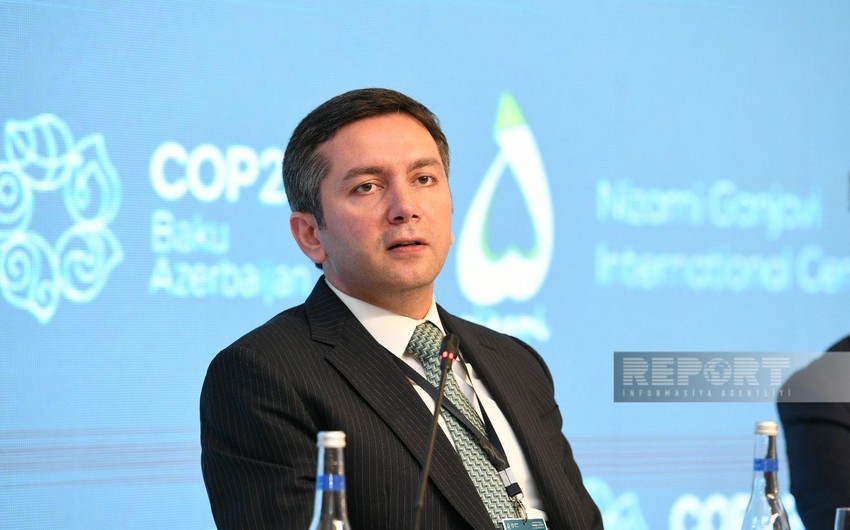The United States and China are closing the divide on the contentious issue of international climate finance, raising hopes for a breakthrough at a crucial climate conference in Azerbaijan, COP29 Lead Negotiator, Azerbaijani Deputy Foreign Minister Yalchin Rafiyev said in an interview with AFP, Report informs.
Yalchin Rafiyev said he had received "positive signals" following recent high-level talks between the world's two largest economies, which frequently assert themselves as leading voices for the Global North and South in international negotiations.
"There had been a very wide gap among the positions of the US and China," explained Rafiyev, who was speaking at the margins of the UN's annual high-level summit, and is tasked with steering negotiations between world leaders at the COP29 negotiations in Baku this November.
"This gap is now narrowing, and we see visible progress," added the 37-year-old diplomat, saying he saw a "softening" of stances on both sides. "That gives us an understanding that we may hope for a positive outcome in the COP29."
More than a decade ago, wealthy nations -- including the United States, European Union, Japan and others -- pledged to deliver $100 billion annually by 2020 to support developing countries.
But that goal was only achieved for the first time in 2022, and much of the funding came in the form of high-interest loans, drawing fierce criticism and accusations of broken promises.
India has called for $1 trillion annually, a ten-fold increase in the existing pledge.
Rafiyev emphasized that COP29's benchmark for success would be reaching consensus on a final headline figure.
The diplomat said Azerbaijan would "do our best" to release its new climate strategy ahead of the Baku summit, and was coordinating with Brazil and the UAE -— the next and previous COP hosts -- towards this goal.
Rafiyev brushed off suggestions that reliance on fossil fuels extraction made Azerbaijan an inappropriate venue for the climate summit.
"Our revenues from fossil fuels have been invested in the welfare of our people," he said, adding that Azerbaijan is now firmly focused on a greener future.
The country has signed a global pledge to reduce methane, a potent long-acting greenhouse gas, and committed to increasing the share of renewables in its energy mix to 30 percent by 2030.
Hosting the conference, he said, "has inspired us to accelerate our energy transition and strengthen our climate resilience."
Azerbaijan has called for a global truce in conflicts during the summit, with Rafiyev pointing to research that attributes nearly six percent of global greenhouse gas emissions to military activity.


 https://static.report.az/photo/081a0e26-823c-345a-be2e-a9ba98e6b9d1.jpg
https://static.report.az/photo/081a0e26-823c-345a-be2e-a9ba98e6b9d1.jpg

